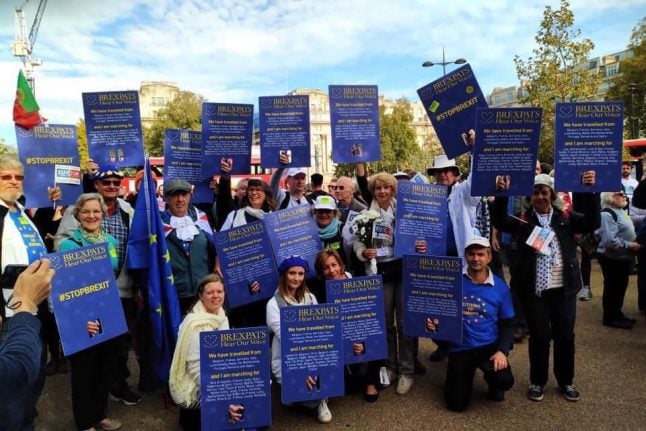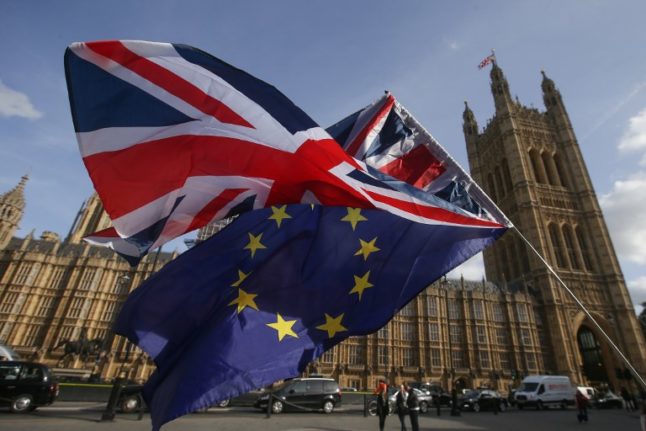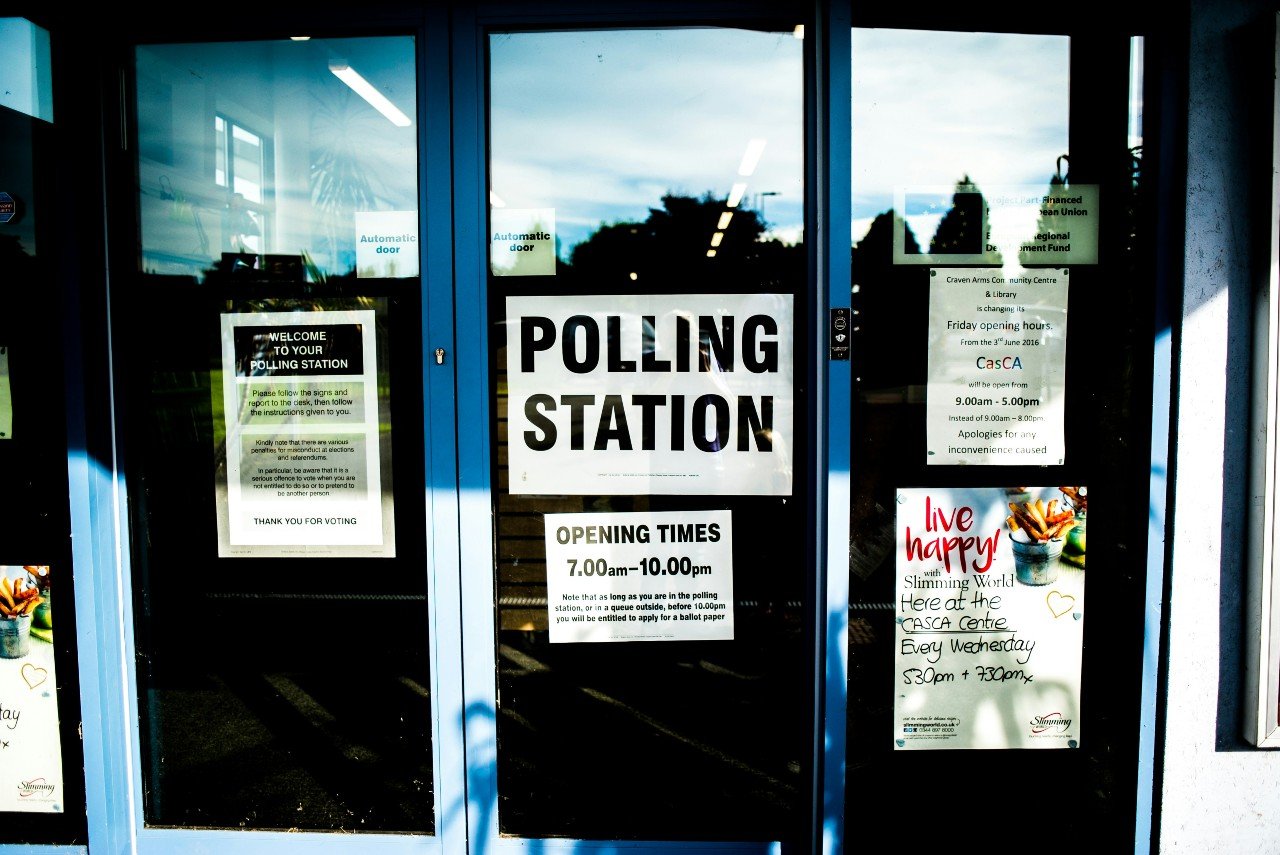BREXIT
OPINION: ‘We moved to Spain in good faith and we shouldn’t lose that right’
With less than 6 weeks until the general election in UK it's more important than ever for those who can to vote, argues Spain-based Debra Williams from the Brexpats Hear our Voice campaign group.
Published: 5 November 2019 17:13 CET

Members of Brexpats - Hear Our Voice at a protest in London. Photo: BHOV
Whichever way I look at Brexit, I always come back to the same point.
It’s all about immigration and the misconceptions surrounding the topic.
In 1965, Max Frisch, a Swiss author, wrote the phrase: “We asked for workers and human beings came.”
He was referring to the mainly Portuguese and Italian so-called guest workers that came to Switzerland in the 1950’s and early 1960’s.
Time has moved on, but his phrase is just as important now as it was then.
Living in Spain is a blessing, heart-warming in fact. As a recent British immigrant to Spain, there has been a great big ‘welcome in the hillsides’ (yes, I’m Welsh), a warmth from the people that I’ve encountered that is endearing.
Do you think that Spanish people that move to the UK have the same welcome? It’s a rhetorical question, but I
do hope so, though I have heard of many examples to the contrary.
A global fundamental lack of knowledge about migration is often perpetuated by some media outlets, governments often categorising people by their net worth.
The good immigrant vs bad immigrant.
This applies equally to British living overseas. Official statistics suggest that there are 1.2 million British living in the European Union, (80 percent working age or younger) with 4.9 million British in total living across the globe (the biggest diaspora of all the European Union countries).
For a small nation with a large emigrant population you would expect our understanding of migration to be at a high level, but since the EU referendum in 2016 it is obvious that this is not the case.
Having the privilege of working with EU Citizens living in the UK on the In Limbo Project has been an eye opener.
Thanks to the founder of the project Elena Remigi, who had the original concept, we now have two books called In Limbo and In Limbo Too.
These two books document in their own words, the Brexit testimonies of human beings affected by Brexit.
They also are a fantastic reference about migration, in particular EU migration (Free Movement of workers).
The testimonies are heart-breaking in most cases, whichever way you look at it. That’s why many groups like mine are fighting to protect all the rights that we have legally exercised, for all of us.
Because, without a doubt they are under threat, let’s be clear about that, don’t bury your heads in the sand, face up to it and join the myriad of groups fighting Brexit and fighting for all of your rights.
You moved to Spain in good faith, believing that things would stay the same for your lifetime, why should you lose those rights.
I don’t want to, do you?
Now we have to face another General Election.
This is because the current UK government know they would never win an informed referendum on the subject.
Once again, those British citizens living abroad and who have been out of the UK for over 15 years will be disenfranchised as well as the EU citizens living in the UK, on a topic that directly affects their lives, it’s preposterous.
So those that can still vote, do so, research tactical voting sites, make sure you are registered to vote, go for a proxy vote if you can, rather than a postal vote, because time is of the essence.
Cast that vote, never has it been more important.
So, to all of you that have moved country, thank you. Thank you for having open minds, integrating, making friends, working, having global families. You enrich us all.
There are no good and bad immigrants, just human beings.
Debbie Williams, Brexpats Hear Our Voice
Castellon Province
Spain
Debbie Williams is ex WRAF and worked in aviation and ATC. She has lived in many EU countries and now lives permanently in Spain. She is the founder of the campaign group Brexpats – Hear Our Voice, Co-editor of In Limbo Too, an International Advisory Board member of the Brexit Brits Abroad research project and a Steering Committee Member of British in Europe.
Url copied to clipboard!





 Please whitelist us to continue reading.
Please whitelist us to continue reading.
Member comments